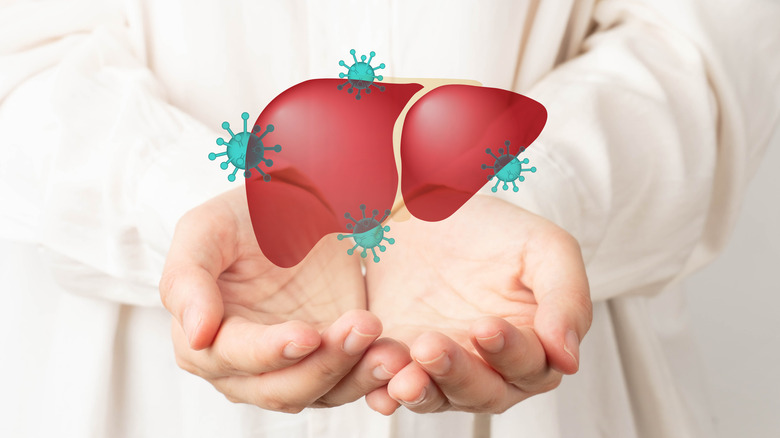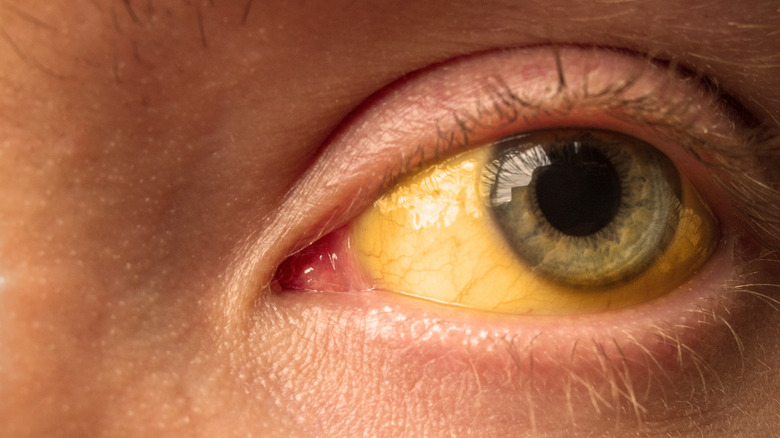What To Know About Liver Cancer
Liver cancer is a dangerous disease that affects any area of your liver, according to the National Health Service (NHS). This vital organ is located in the top right region of your abdomen, above the stomach, and plays an integral role in removing harmful toxins. In addition, it releases compounds that help with digestion, per the Centers for Disease Control and Prevention (CDC). Unfortunately, liver cancer does impact a large population in the U.S. In fact, around 25,000 males and 11,000 women are diagnosed with liver cancer every year. And approximately 19,000 men and 9,000 women lose their lives to it. Luckily, the numbers are now declining.
While there are many kinds of liver cancer, the most widely diagnosed type is hepatocellular carcinoma (per Mayo Clinic). Hepatocellular carcinoma is common in those with the symptoms of hepatitis B or C or any long-term liver illness (via Mayo Clinic). Alcoholics, in particular, are at a high risk of this kind of liver cancer. Another type of liver cancer affecting the bile duct is intrahepatic cholangiocarcinoma, as per the American Cancer Society. It causes cancerous growth in the small bile ducts. And although rare, hepatoblastoma is a liver cancer that causes tumors in children under the age of 4 years. However, with the right treatment, the survival rate of hepatoblastoma is a whopping 80% to 90% (via Cincinnati Children's).
Symptoms and causes of liver cancer
Liver cancer affects the liver's DNA cells, according to the Cleveland Clinic. In turn, this develops tumors and kills off healthy liver cells, primarily due to typical liver infections, such as hepatitis B or C. Besides, Cancer Council states that you may be at high risk of liver cancer if you are obese or have Type 2 diabetes, as it leads to fatty liver disease. It's also common for those exposed to carcinogenic chemicals for a long time to have symptoms of liver cancer. The American Cancer Society, for example, reveals that tobacco smokers and heavy drinkers have an increased risk of liver cancer.
Luckily, there are several signs of liver cancer that may indicate the onset of this disease. According to the NHS, liver cancer may cause your skin to turn yellow, white, or generally pale. It's also common for liver cancer patients to have itchy skin, immense fatigue, or a feeling of discomfort and uneasiness. Some people may also notice a lump on the upper right side of the abdomen. The Cleveland Clinic reports that chemotherapy, radiation therapy, and immunotherapy are among the many treatments for liver cancer. However, in severe cases, doctors may recommend liver transplants.


